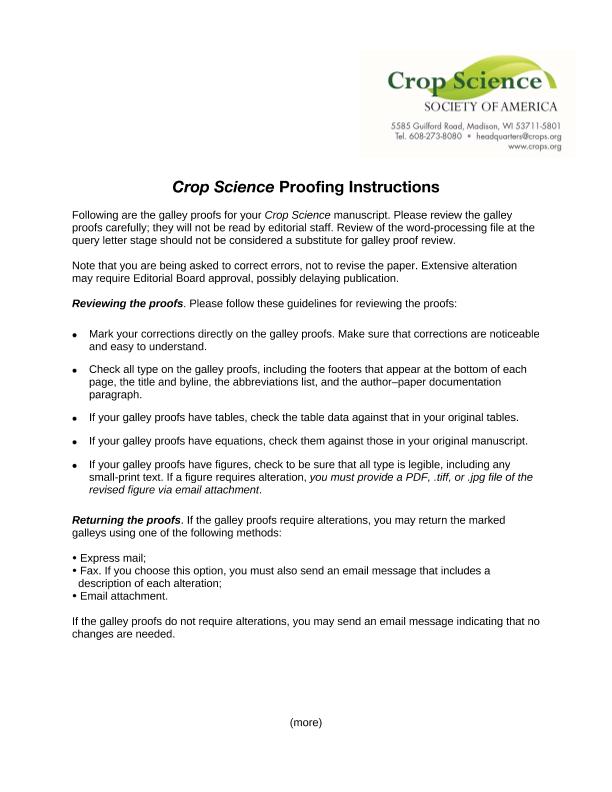Artículo
Karyotype stability and genome-specific nucleolar dominance in peanut, its wild 4× ancestor, and a synthetic AABB polyploid
Seijo, José Guillermo ; Kovalsky, Ivana Evelìn
; Kovalsky, Ivana Evelìn ; Chalup, Laura María Isabel
; Chalup, Laura María Isabel ; Samoluk, Sergio Sebastián
; Samoluk, Sergio Sebastián ; Fávero, Alessandra; Robledo Dobladez, Germán Ariel
; Fávero, Alessandra; Robledo Dobladez, Germán Ariel
 ; Kovalsky, Ivana Evelìn
; Kovalsky, Ivana Evelìn ; Chalup, Laura María Isabel
; Chalup, Laura María Isabel ; Samoluk, Sergio Sebastián
; Samoluk, Sergio Sebastián ; Fávero, Alessandra; Robledo Dobladez, Germán Ariel
; Fávero, Alessandra; Robledo Dobladez, Germán Ariel
Fecha de publicación:
07/2018
Editorial:
Crop Science Society of America
Revista:
Crop Science
ISSN:
0011-183X
e-ISSN:
1435-0653
Idioma:
Inglés
Tipo de recurso:
Artículo publicado
Clasificación temática:
Resumen
Allopolyploidy is a significant evolutionary process involved in the origin of many crops, including peanut (Arachis hypogaea L.). The process usually results in a series of chromosome, genomic and epigenetic rearrangements in the derived polyploids. Here, we examined the chromosomal consequences undergone by AABB tetraploids of Arachis after the genome merger. For that objective, different chromosome markers and DNA contents were compared among peanut, its wild tetraploid ancestor, and the diploid genome donors A. duranensis Krapov. & W.C. Gregory (AA, female) and A. ipaënsis Krapov. & W.C. Gregory (BB, male). The analysis also included an artificially synthesized allotetraploid using A. ipaënsis as a female [(A. ipaënsis × A. duranensis)4×]. The karyotypes in the natural (originated ~10,000 yr ago) and newly synthesized allopolyploids have largely maintained the patterns of heterochromatin and ribosomal RNA loci detected in the diploid progenitors. Intergenomic translocations were not evident using genome in situ hybridization, and the DNA contents of the allotetraploids corresponded to the expected sum of those observed in their parental species. The analysis of ribosomal DNA loci and their association with nucleolar organizing regions revealed a rapid establishment of nucleolar dominance in favor of the A genome. The large macrostructural stability of karyotype observed here after polyploidization has not been frequently cited for polyploid crop plants. This stability is significant for peanut breeding, since it suggests that effective introgression of wild useful alleles into cultivated peanut may potentially occur in most of the extension of the A and B chromosome complements.
Palabras clave:
Poliploides
,
Estabilidad Cariotipica
,
Maní
,
Anfidiploide
Archivos asociados
Licencia
Identificadores
Colecciones
Articulos(IBONE)
Articulos de INST.DE BOTANICA DEL NORDESTE (I)
Articulos de INST.DE BOTANICA DEL NORDESTE (I)
Citación
Seijo, José Guillermo; Kovalsky, Ivana Evelìn; Chalup, Laura María Isabel; Samoluk, Sergio Sebastián; Fávero, Alessandra; et al.; Karyotype stability and genome-specific nucleolar dominance in peanut, its wild 4× ancestor, and a synthetic AABB polyploid; Crop Science Society of America; Crop Science; 58; 4; 7-2018; 1671-1683
Compartir
Altmétricas



